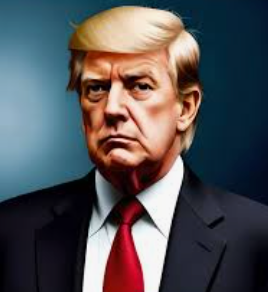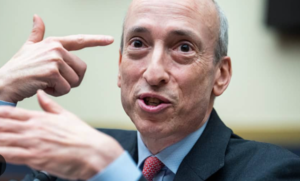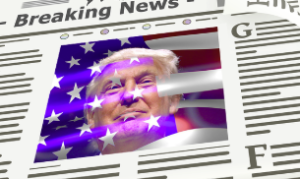$SPY $DXY $BTC
#TrumpTariffs #Globalisation #TradePolicy #EconomicGrowth #MarketVolatility #USChinaTrade #GlobalMarkets #USEconomy #TariffsImpact #InvestorOutlook #FinancialAnalysis #EconomicUncertainty
Overly pessimistic reactions to trade policy, especially concerning the Trump administration’s tariff plans, risk creating significant economic and market distortions beyond the scope of the policies themselves. While the tariffs are widely criticized for their potential to disrupt supply chains and increase costs for businesses and consumers, the real damage could come from the overreaction of investors, companies, and policymakers. Once businesses readjust their plans based on such expectations, the entrenched view of impending economic shocks could lead to delayed investment decisions, hesitation in global trade agreements, and a broader reduction of confidence in globalisation. These fears may exacerbate volatility in equity markets like $SPY or pressure currency values like the $DXY, while leaving investors uncertain about hedges in alternative assets like $BTC.
Critics of tariffs argue that such measures invariably lead to a lose-lose situation, squeezing economies on both sides of a trade dispute. However, when gloom takes on an exaggerated tone, it often causes unnecessary pullbacks and reallocations in investment portfolios. In the past, similar fears led to knee-jerk corrections in stock indices, followed by a rebound once markets realized the on-ground impact was less severe than anticipated. Critics and analysts worried about harmful long-term effects of tariff policies should continue to examine initial data and emerging evidence. However, painting too drastic a picture risks undermining faith in globalization, as it suggests even minor trade adjustments could cause systemic collapse—a narrative that could further isolate economies.
On the other hand, the extent to which tariffs hurt the long-term economic outlook depends on how global markets react. Historically, trade disputes have had more of a sectoral impact rather than a broad-based economic downturn. U.S. manufacturing and agricultural stocks, for instance, could see increased price volatility, while sectors less reliant on global supply chains may remain more stable. Global reactions might amplify fears by creating waves of market sell-offs or by increasing the cost of capital for emerging markets. This is evident in past trade disputes, where initial uncertainty caused by verbal warnings or legislation led to collateral damage for dollar-denominated assets and export-dependent currencies. The ability of the U.S. and its trade partners to negotiate effectively could therefore be critical in maintaining macroeconomic stability.
For globalisation, the stakes are higher than just financial markets. If investors start retreating from global diversification and national economies prioritize isolationist policies, the ripple effects could take years to reverse. Such outcomes harden trade policies and complicate international relations, particularly between nations like the U.S. and China. The current investment sentiment reflects heightened sensitivity to tariff announcements, and the challenge for market participants lies in navigating through fear-driven narratives. Pessimism unchecked could translate into reduced trade flows and prolonged uncertainty, a scenario that markets have historically penalized heavily. Investors should remain cautious yet grounded, monitoring sectors most exposed to trade risks while avoiding the influence of overblown apocalyptic predictions.











Comments are closed.